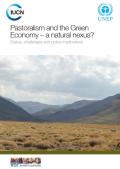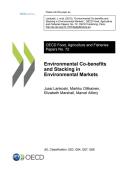This study examines various low-carbon green growth (LCGG) initiatives that the South Korean government introduced to market Korea as a trendsetter in the global environmental arena. The country's domestic foundations for environmental innovation, however, reveals a dissonance between its international aspirations and the internal conditions that are needed to sustain the pursuit. This case of mixed environmental achievements by a rising middle-power state suggests the insufficiency of a state-led approach to environmental innovation and leadership.
The Korean government adopted “green growth” in 2008 as an environmentally friendly growth strategy. The energy efficiency of Korea, however, is still relatively low due to the large portion of energy intensive industry (EII) in its manufacturing sector. To improve energy efficiency in Korea, from an EII perspective a new approach has to be taken because restructuring entire industries would take too much time and be too costly. This study aims to emphasize the importance of innovation and analyze the effects of R&D on product and process innovations in EII in Korea. The Probit model is adopted to estimate the effects of eight determinants in the Korea Innovation Survey 2008 data. The results of this study demonstrate that one of the most important determinants, the R&D personnel ratio, has a strong positive effect on both product and process innovation, while another determinant, R&D intensity, only has a strong and positive effect on process innovation in EII. Because of the resulting innovation, energy policies should be enacted to enhance energy efficiency.


While the world’s cities face an array of challenges and priorities – which are as diverse as the cities themselves – the need to establish a more sustainable footing for urban and peri-urban industry is common to many. Including industry in integrated strategies, policies, and planning to manage resource use will be crucial for these cities in the pursuit of greater environmental sustainability, as well as employment and improved living standards.
